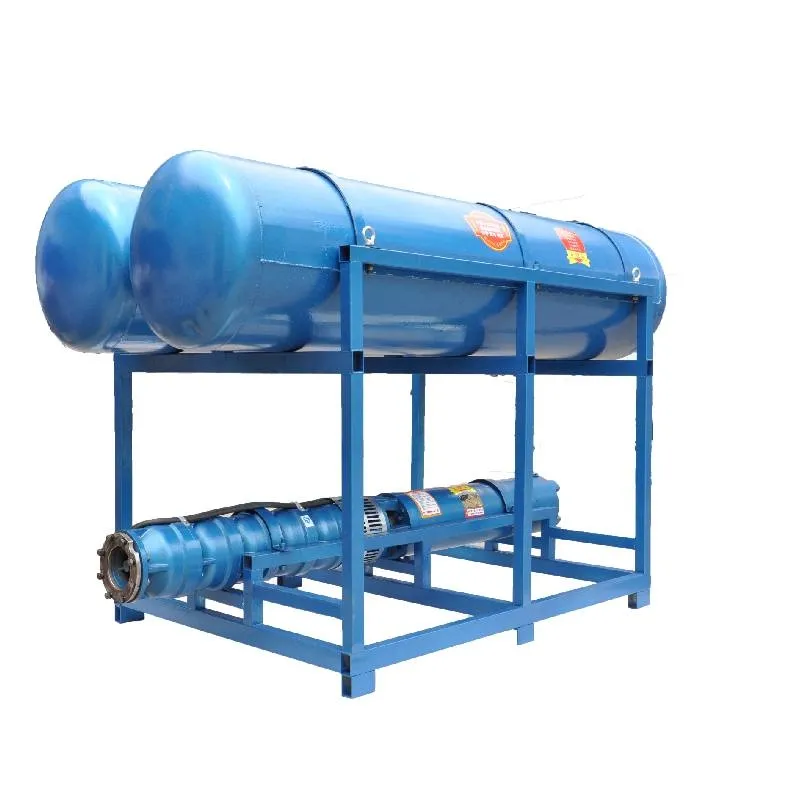Aug . 06, 2024 13:41 Back to list
Durable Stainless Steel Submersible Pumps for Efficient Water Handling in Various Applications
The Advantages of Stainless Steel Submersible Pumps
Submersible pumps are critical components in various industries, including agriculture, mining, and municipal services. Among the different materials used to manufacture these pumps, stainless steel has emerged as a preferred choice due to its numerous advantages. This article explores the key benefits of stainless steel submersible pumps and their applications.
Durability and Corrosion Resistance
One of the primary advantages of stainless steel submersible pumps is their exceptional durability. Stainless steel is highly resistant to corrosion, which is crucial for pumps that operate underwater or in harsh environments. Water, particularly when mixed with chemicals, can be incredibly corrosive. Stainless steel helps mitigate this issue, ensuring that the pump maintains its structural integrity over time. This characteristic significantly extends the lifespan of the pump, reducing the need for frequent replacements and maintenance.
Strength and Reliability
Stainless steel pumps are known for their strength and reliability. They can withstand high pressure and heavy workloads, making them ideal for a wide range of applications. Whether in sewage treatment plants, deep well applications, or as part of industrial processes, these pumps perform efficiently under various conditions. The robust construction of stainless steel submersible pumps minimizes the risk of breakdowns, ensuring consistent performance and reliability.
Hygienic Properties
Another significant advantage of stainless steel is its hygienic properties. Stainless steel is non-porous and easy to clean, making it suitable for applications in the food and beverage industry, as well as in water treatment facilities. Pumps made from stainless steel help prevent contamination, ensuring that the water or fluid transported remains clean and safe. This is particularly important in industries where hygiene standards are stringent.
stainless steel submersible pump

Versatility
Stainless steel submersible pumps come in various designs and configurations, enabling them to be used in diverse applications. From deep well pumping to drainage in construction sites, these pumps can handle a broad spectrum of fluids, including clear water, wastewater, and even slurries. Their versatility makes them a popular choice among engineers and contractors who require reliable solutions for various pumping tasks.
Energy Efficiency
Modern stainless steel submersible pumps are designed with energy efficiency in mind. Many models incorporate advanced motor technologies and hydraulic designs that maximize flow rates while minimizing energy consumption. This not only helps reduce operational costs but also supports sustainability efforts by lowering the carbon footprint associated with power usage.
Cost-Effectiveness
While stainless steel submersible pumps may have a higher initial purchase price compared to pumps made from other materials, the long-term cost benefits are significant. Their durability translates to lower maintenance expenses and reduced replacement frequency. Additionally, energy-efficient models contribute to lower operational costs, making stainless steel pumps a cost-effective solution in the long run.
Conclusion
In conclusion, stainless steel submersible pumps offer numerous advantages that make them an excellent choice for various applications. Their durability, corrosion resistance, hygienic properties, versatility, energy efficiency, and long-term cost-effectiveness make them superior to many alternative materials. As industries continue to prioritize quality, reliability, and sustainability, the demand for stainless steel submersible pumps is likely to grow, reinforcing their position as a critical component in modern pumping solutions. Whether for agricultural irrigation, municipal water supply, or industrial applications, stainless steel submersible pumps remain a top choice for those seeking performance and longevity.
-
Submersible Water Pump: The Efficient 'Power Pioneer' of the Underwater World
NewsJul.01,2025
-
Submersible Pond Pump: The Hidden Guardian of Water Landscape Ecology
NewsJul.01,2025
-
Stainless Well Pump: A Reliable and Durable Pumping Main Force
NewsJul.01,2025
-
Stainless Steel Submersible Pump: An Efficient and Versatile Tool for Underwater Operations
NewsJul.01,2025
-
Deep Well Submersible Pump: An Efficient 'Sucker' of Groundwater Sources
NewsJul.01,2025
-
Deep Water Well Pump: An Efficient 'Sucker' of Groundwater Sources
NewsJul.01,2025
-
 Submersible Water Pump: The Efficient 'Power Pioneer' of the Underwater WorldIn the field of hydraulic equipment, the Submersible Water Pump has become the core equipment for underwater operations and water resource transportation due to its unique design and excellent performance.Detail
Submersible Water Pump: The Efficient 'Power Pioneer' of the Underwater WorldIn the field of hydraulic equipment, the Submersible Water Pump has become the core equipment for underwater operations and water resource transportation due to its unique design and excellent performance.Detail -
 Submersible Pond Pump: The Hidden Guardian of Water Landscape EcologyIn courtyard landscapes, ecological ponds, and even small-scale water conservancy projects, there is a silent yet indispensable equipment - the Submersible Pond Pump.Detail
Submersible Pond Pump: The Hidden Guardian of Water Landscape EcologyIn courtyard landscapes, ecological ponds, and even small-scale water conservancy projects, there is a silent yet indispensable equipment - the Submersible Pond Pump.Detail -
 Stainless Well Pump: A Reliable and Durable Pumping Main ForceIn the field of water resource transportation, Stainless Well Pump has become the core equipment for various pumping scenarios with its excellent performance and reliable quality.Detail
Stainless Well Pump: A Reliable and Durable Pumping Main ForceIn the field of water resource transportation, Stainless Well Pump has become the core equipment for various pumping scenarios with its excellent performance and reliable quality.Detail
